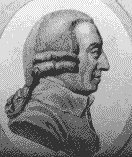|
HOME
|
Prehistory
| Billions | Technology
| Theories
| Charles
Darwin
Archaeology | Evolution | Lucy | Fire | Neandertals | Abraham Maslow |
|||
|
A Long Time Ago
Some cool links
|
||||
|
Prehistory
| Billions | Technology
| Theories
| Charles
Darwin
Archaeology | Evolution | Lucy | Fire | Neandertals | Abraham Maslow
To cite this page: © 2001, Mike Dowling. All rights reserved. |

 History
began when humans learned to read and write. The first writing
we know of came from civilizations in Mesopotamia and Egypt about
5500 years ago. People lived for thousands of years before this,
but little changed from generation to generation. People lived
as nomads. Nomads are people who have no permanent home. Men hunted
animals and women gathered wild plants. When there were no more
animals to hunt or plants to gather, they moved to a new place.
History
began when humans learned to read and write. The first writing
we know of came from civilizations in Mesopotamia and Egypt about
5500 years ago. People lived for thousands of years before this,
but little changed from generation to generation. People lived
as nomads. Nomads are people who have no permanent home. Men hunted
animals and women gathered wild plants. When there were no more
animals to hunt or plants to gather, they moved to a new place.
 Society
developed when people began to do individual jobs. This is called
the "division of labor." When people do only one job, they usually
choose a job they enjoy and do well. Further, when you do the
same job over and over, you learn to do it very well. The division
of labor caused people to depend on one another and eventually
led to advanced civilizations.
Society
developed when people began to do individual jobs. This is called
the "division of labor." When people do only one job, they usually
choose a job they enjoy and do well. Further, when you do the
same job over and over, you learn to do it very well. The division
of labor caused people to depend on one another and eventually
led to advanced civilizations.  have
seen further than others, it is because I have stood on the shoulders
of giants." What Sir Isaac meant was that his accomplishments
were possible because he learned from the people who came before
him. Instant worldwide communication is one reason why our society
is rapidly changing as we reach the new millenium.
have
seen further than others, it is because I have stood on the shoulders
of giants." What Sir Isaac meant was that his accomplishments
were possible because he learned from the people who came before
him. Instant worldwide communication is one reason why our society
is rapidly changing as we reach the new millenium. 
